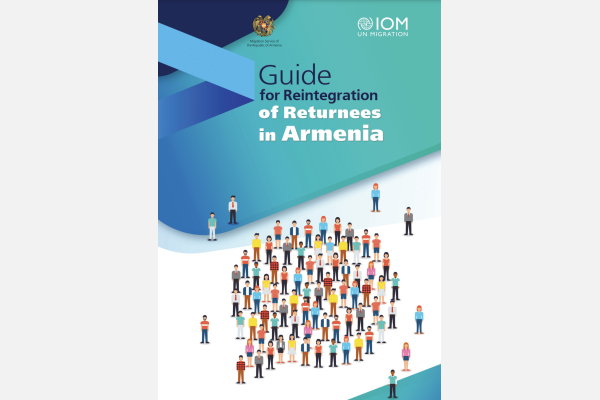Repository of Practices

Guide for Reintegration of Returnees in Armenia
Dates
Type of practice
Summary
The Guide describes the role and functions of State and non-State bodies in reintegration of returnees; covers the various issues related to reintegration such as citizenship, residence, return documents, entry to Armenia and registration; pensions and benefits; economic and social reintegration; employment and self- employment (entrepreneurship) services for returnees, vocational training services; training and re-qualification; education and language training; banking system and micro-crediting; military service; customs and tax issues; and health and health insurance. In addition, the Guide includes useful addresses and contacts.
Organizations
Main Implementing Organization(s)
Detailed Information
Partner/Donor Organizations
Benefit and Impact
Key Lessons
The second edition published in 2016 provides updated information about roles of all relevant State, non-State and intergovernmental bodies involved in return of Armenian citizens and their successful reintegration in Armenia; and given that reintegration has different aspects (legal, social, psychological, cultural, economic, health related, etc.) which require a complex approach, this guide will serve as a referral point for further assistance.
The third edition was published in 2020 and includes legal and institutional changes in the field of return and reintegration as well as new projects implemented by governmental and non-governmental organizations.
The Guide is intended to strengthen the in-country network of reintegration service providers. Sound capacity building focused on cooperation and coordination of reintegration services will hone the skills of the relevant officials and improve the reintegration services ultimately leading to more sustainable return.
Recommendations(if the practice is to be replicated)
Innovation
Additional Resources
Date submitted:
Disclaimer: The content of this practice reflects the views of the implementers and does not necessarily reflect the views of the United Nations, the United Nations Network on Migration, and its members.
More Related Practices:
- Tablero Interactivo Estadísticas sobre Movilidad y Migración Internacional en México
- Encuesta Nacional Migrante de la Argentina (ENMA)
- Cultural advisories in the services of maternity´s health for the indigenous cross-border community Ngäbe Bugle (WHP)
- A Journey of a Thousand Mile Begins with a single Step: Djibouti’s Experience in Strengthening Migration and Displacement Data Governance
- A designated migration module for processing comprehensive migration data in the existing Information Monitoring and Evaluation system of TB patients in the Republic of Moldova (SIME TB)
Peer Reviewer Feedback:
*References to Kosovo shall be understood to be in the context of United Nations Security Council resolution 1244 (1999).
Newsletter
Subscribe to our newsletter.